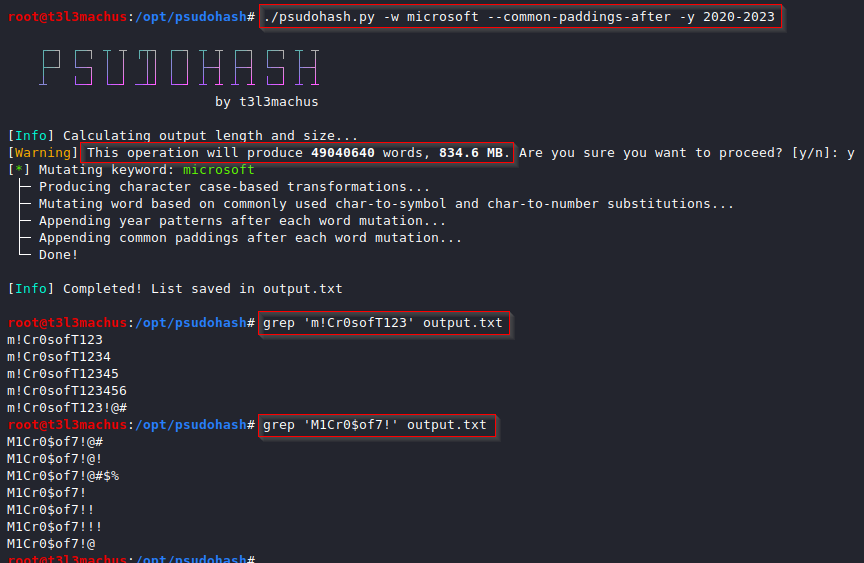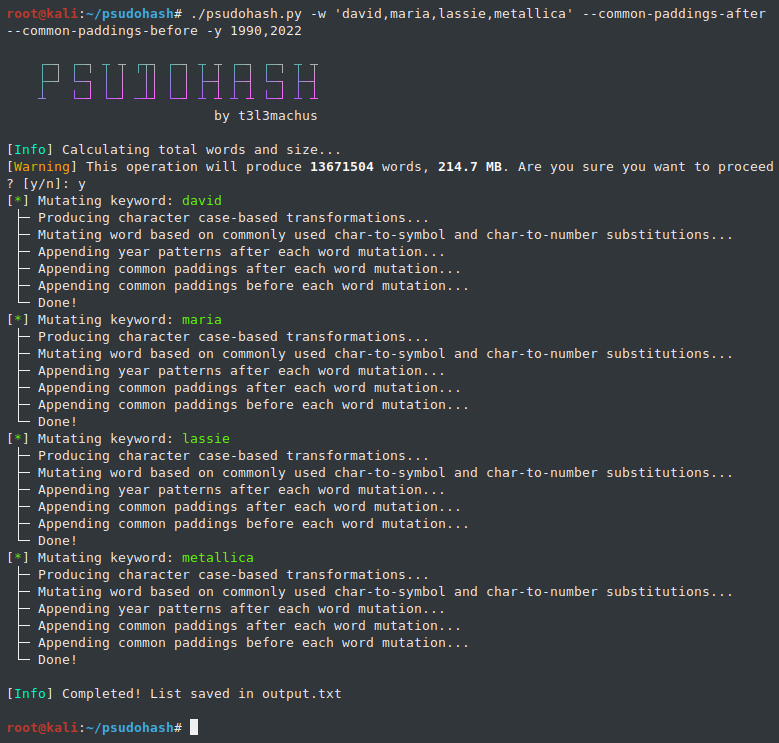Psudohash is a password list generator for orchestrating brute force attacks and cracking hashes. It mimics some password generation patterns commonly used by people, such as replacing the letters of a word with symbols or numbers (leet), using variations of the font, adding a common padding before or after the main passphrase, and more.
It is keyword based and highly customizable.

Installation and Use
git clone https://github.com/t3l3machus/psudohash cd ./psudohash chmod +x psudohash.py
./psudohash.py [-h] -w WORDS [-an LEVEL] [-nl LIMIT] [-y YEARS] [-ap VALUES] [-cpb] [-cpa] [-cpo] [-o FILENAME] [-q]
Video guide
Parameterization
The script uses the following system character replacement. You can add/modify character substitution mappings by editing the transformation list in the psudohash.py file and following the data structure shown below (default):
transformations = [
{'a' : ['@', '4']},
{'b' : '8'},
{'e' : '3'},
{'g' : ['9', '6']},
{'i' : ['1', '!']},
{'o' : '0'},
{'s' : ['$', '5']},
{'t' : '7'}
]
When setting passwords, it is quite common to add a sequence of characters before or after the main passphrase to make it “stronger”. For example, one can set a password of “dragon” and add a value like “!!!” or “!@#” at the end, resulting in “dragon!!!”, “dragon!@#”, etc.
Psudohash reads such values from the file common_padding_values.txt and uses them to mutate the supplied keywords by appending them before (-cpb) or after (-cpa) each keyword variant produced. You can modify it as you see fit.
Useful tips
- The combination of the –years and –append-numbering options with a –numbering-limit ≥ ta two last digits of any input year will likely produce duplicate words due to the mutation patterns applied by the tool.
- If you add custom padding values and/or modify the predefined common padding values in the source code, combined with multiple optional parameters, there is a small chance that duplicate words will appear. psudohash includes controlof word filtering, but for speed reasons, these are limited.
individuals
All of us have (more or less) set passwords using a variation of one or more words that mean something to us, e.g. our name or the name of our spouse/child/pet/band, pasting the year we were born or maybe a safe padding like “!@#”.

You can download the program from here.





